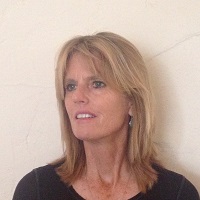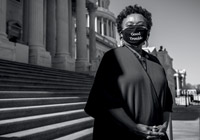AS MUCH OF THE COUNTRY BRACES for the possibility that the United States Supreme Court will soon move to eliminate constitutional protections for abortion, many states are poised to gut or curtail those rights. California, by stark contrast, is positioning itself to become a haven for those barred or restricted elsewhere — and UCLA is central to that effort.
If the court overturns Roe v. Wade — and the leak in early May of a draft opinion strongly suggests that it’s about to — the ruling could remove any constitutional right to abortion, which now protects women who seek to end their pregnancies before fetal viability, about 23 weeks. At least 20 states are prepared, given that opening, to immediately impose bans or severely restrictive abortion. Since many of the states poised to enact such restrictions are in the South and West, California would become the closest state with access to abortion care within driving distance for about 1.4 million non-California residents, according to estimates by Guttmacher Institute, a research organization in favor of abortion rights.
California lawmakers and reproductive rights advocates have been preparing for this possibility since 2016. Legislative leaders and dozens of other stakeholders in December recommended 45 changes — legislative, administrative and executive — to expand and improve abortion access and increase numbers of providers as other states move to outlaw abortion. Lawmakers also introduced eight bills into the 2022 legislative session to help secure the state’s “leadership role as a national beacon for reproductive freedom,” according to the California Legislative Women’s Caucus, a bipartisan group of female legislators advocating on behalf of women, children and families.
UCLA School of Law is part of the state’s plan and has been given a $5 million grant to create a reproductive rights institute. The new Institute on Reproductive Health, Law & Policy would be a kind of think tank to protect, expand and advance a right most Americans have come to know as an unquestionable part of their reproductive autonomy for nearly a half-century. Its sudden reversal would be a shock and a blow, particularly to millions of young women and families.
“The governor and Legislature have been incredibly serious about making California a haven for people across the state who need abortion care and, moving forward, to provide reproductive care for people outside the state,” said Bradley Sears, associate dean of public interest law in UCLA’s law school. “But it is not just a defensive posture. The state is really investing — even for people in California for whom cost might be a barrier.”
The new reproductive institute will use a cross-disciplinary approach to reproductive rights, health care and justice, said Cary Franklin, acting faculty director of the institute. “One of the most important things we will do is train policymakers, scholars and lawyers who may want to work in reproductive rights to produce more strategies to preserve reproductive rights. My hope is for this institute to be a leader for what the future will look like.”
The institute will collaborate with the medical school, the schools of public policy and public health and other campus centers.
It has five goals: training law students to work on reproductive rights through litigation, policy and other advocacy strategies; educating judges, legislators, nonprofit leaders and health care providers; suggesting new paths by bringing reproductive rights scholars and advocates together to brainstorm; publishing research that affects current debates about reproductive rights and health; and emphasizing the importance of reproductive freedom by telling the stories of those whose lives are affected by it.
In some cases, the most urgent need is to correct misinformation, such as the false impression that abortion is a dangerous procedure. Today, deceptive crisis pregnancy centers, which spread lies in order to dissuade women from obtaining abortions, significantly outnumber abortion care clinics in California, according to a 2021 California Women’s Law Center (CWLC) report. Some are deliberately placed next to Planned Parenthood clinics and share a parking lot. These centers are located mostly in low- income communities of predominantly people of color. The majority offer no medical care from licensed professionals but receive state and federal funds for services, the report notes. They use false medical claims about abortion and pregnancy, targeting people of color and low-income people seeking abortions with misleading claims about services they offer. The CWLC has advocated barring state funding to these centers.
Pregnancy crisis centers underscore how abortion barriers often have the greatest impact on the most vulnerable people seeking reproductive care. Those are precisely the people that UCLA and California are setting out to protect, said Franklin, who teaches reproductive law. “There is a lot of thinking about how to help people who are arriving across the country to our state.”
























